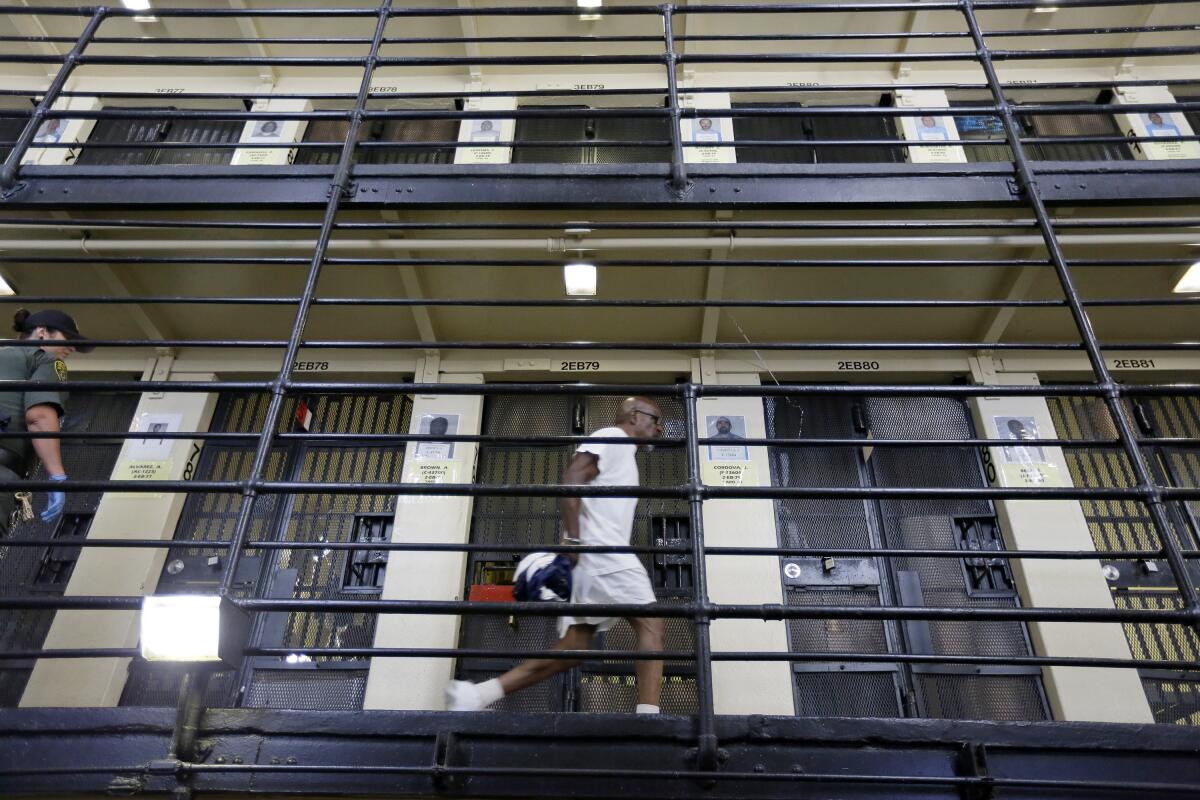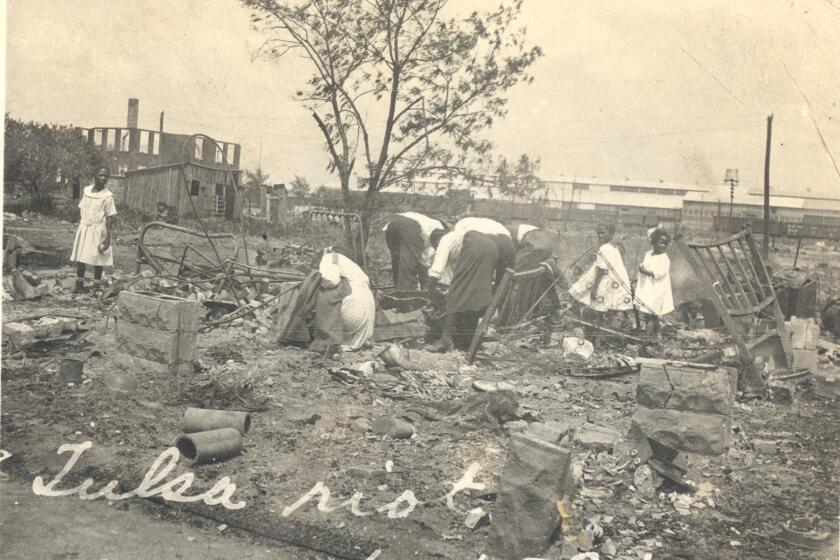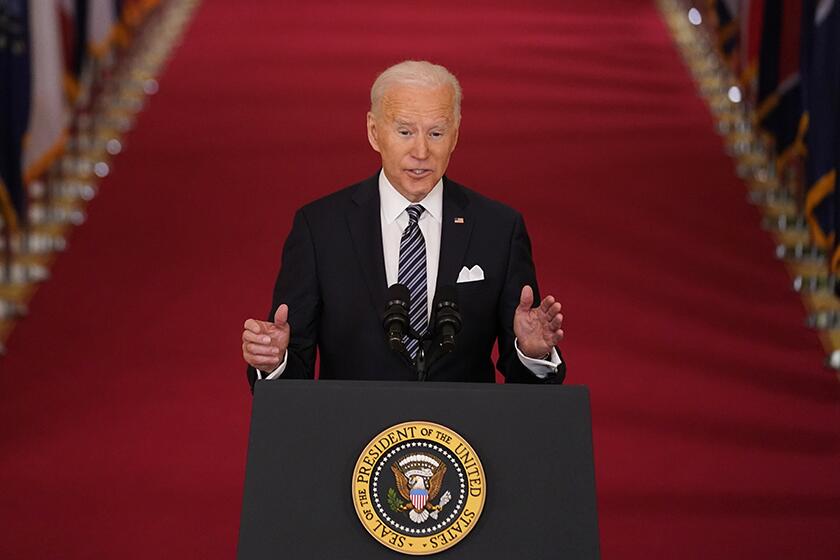California Supreme Court should look beyond this case and end capital punishment

- Share via
The California Supreme Court heard oral arguments Wednesday in a case that could have a far-reaching impact on one of the state’s thorniest issues: capital punishment. No decision is expected until later this summer, but the court could throw out the death sentence for convicted murderer Don’te McDaniel because the jury did not agree unanimously and beyond a reasonable doubt on the aggravating circumstances cited to justify his execution. The ramifications of such a ruling could be wide on a death row that currently holds 703 people.
The weight of the decision is reflected in the attention paid to the case. Gov. Gavin Newsom filed an amicus brief — the first by a sitting California governor — urging the court to throw out the sentence while rightly taking broader aim at capital punishment itself as too freighted by racism to stand. Similar arguments were made by half a dozen current and former county prosecutors, including Los Angeles County Dist. Atty. George Gascón.
During oral arguments, the justices zeroed in on, among other things, rulings dating to the mid-19th century, the change over time in the responsibilities of juries in criminal trials, and questions about whether the penalty phase requires juries to adhere to the same “reasonable doubt” standard used when determining whether a defendant is guilty.
The Times Editorial Board examines the reckoning of the last year and considers what it means for policing and protest in Los Angeles and elsewhere.
The legal arguments in the McDaniel case can feel arcane, but the broader contours of the case bring into sharp relief the seemingly unfixable shortcomings of the death penalty system itself. Studies have found that at the penalty phase, jurors weigh aggravating factors differently depending on the race of the defendant, putting nonwhite defendants at more risk of receiving a death sentence.
Beyond being skewed by racism, the system is poisoned by human error and occasionally malfeasance; most wrongful convictions arise from misconduct by police and prosecutors or errors by witnesses — some of them intentional. And a prosecutor in one county might find a crime subject to the death penalty while her counterpart in another county, looking at the same crime and same state law, decides that it is not.
Biden calls a Texas bill part of an ‘assault on democracy’
We argued last year that the Supreme Court should use the McDaniel case to take a deep and sober assessment of the constitutionality of California’s capital punishment system, and then toss it out. Yes, California voters had the opportunity to do that themselves in 2016, but instead they defeated Proposition 62 to end the death penalty and approved Proposition 66, which backers promised would speed up the pace of executions. That hasn’t happened, in large part because the state Supreme Court threw out the five-year deadline for appeals that Proposition 66 dictated, and the initiative failed to pay for the expanded pool of defense lawyers the measure mandated.
Ultimately, it is impossible to make capital punishment just and fair because it relies on the thoughts and actions of human beings. It is as flawed as society itself, and it requires a level of willful blindness to not recognize that. It cannot be fixed. And the state Supreme Court can recognize that reality in this case and throw out the entire system. Justice demands it.
More to Read
A cure for the common opinion
Get thought-provoking perspectives with our weekly newsletter.
You may occasionally receive promotional content from the Los Angeles Times.








